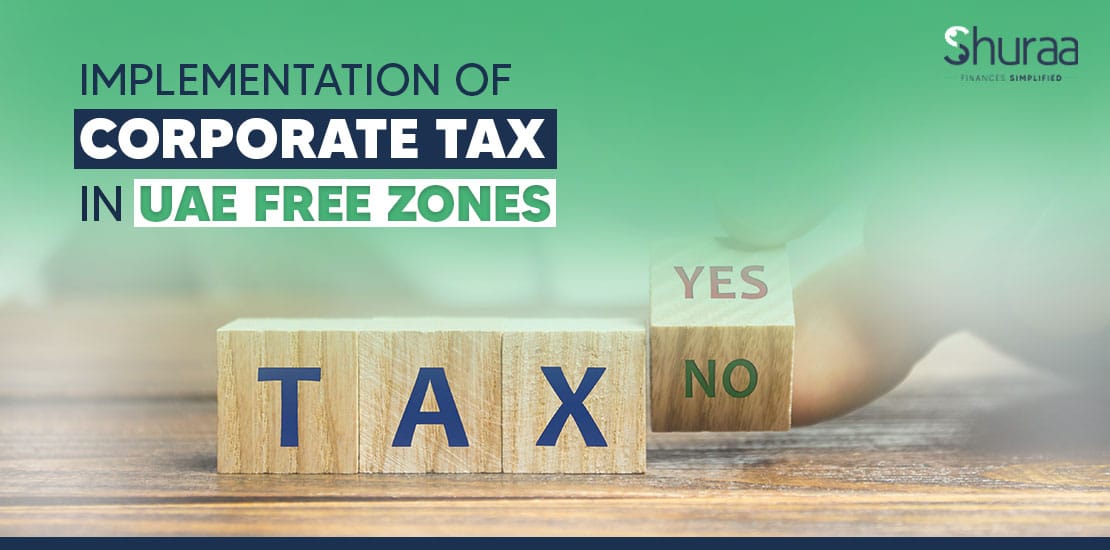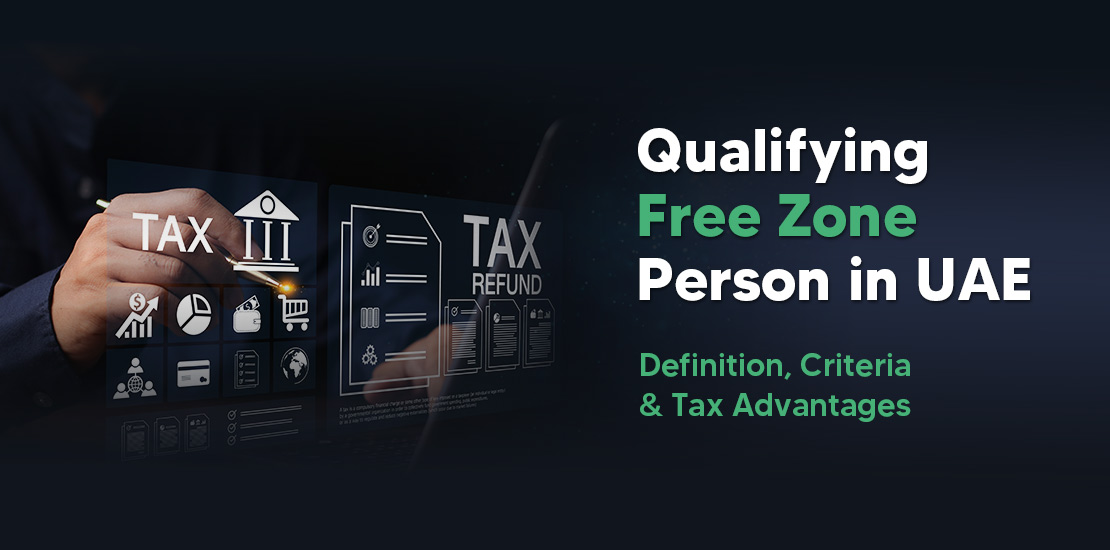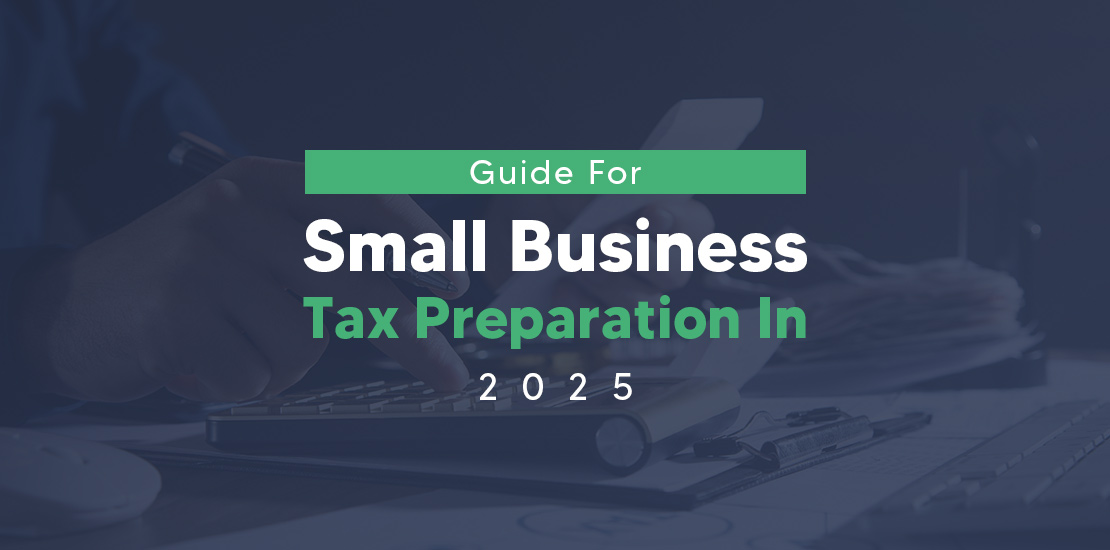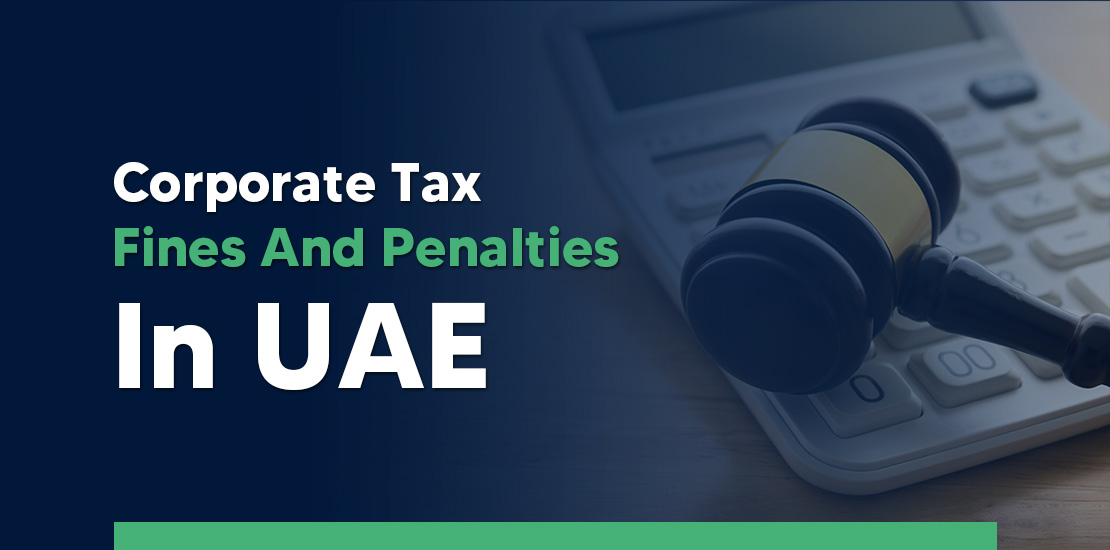Table of Contents
- What is Corporate Tax UAE Free Zone?
- Definition of Qualifying Income in UAE Corporate Tax-Free Zone
- Activities Excluded from UAE Corporate Tax-Free Zone
- Qualifying Activities within UAE Corporate Tax-Free Zone
- Qualifying Free Zone Person Eligibility and Tax Benefits
- De Minimis Requirements for Qualifying Free Zone Person Status
- Consequences of Failing to Meet Qualifying Conditions
- Domestic Permanent Establishment
- Ensuring Adequate Substance in the Free Zone
- Key Takeaway and Next Steps!
Recently, the eagerly awaited Corporate Tax-Free Zone rulings have been unveiled. Specifically, on 30 May 2023, Cabinet Decision No. 55 of 2023 was enacted, aiming to determine the Qualifying Income for the Qualifying Free Zone Person in accordance with Federal Decree-Law No. 47 of 2022 on the Taxation of Corporations and Businesses (referred to as the “CT Law”).
In addition, on 1 June 2023, the Ministry of Finance released Ministerial Decision No. 139 of 2023, which outlines the Qualifying Activities and Excluded Activities for the purposes of the CT Law. One should read this decision in conjunction with Cabinet Decision No. 55 of 2023 and CT Law to fully grasp the proposed regulations.
However, This blog post will delve into the details for those interested in learning more about UAE corporate tax-free zones. So, let’s continue reading to understand the subject comprehensively.
What is Corporate Tax UAE Free Zone?
The UAE corporate tax-free zone Law specifies the taxation rates for a Qualifying Free Zone Person (“QFZP”) as follows:
1. So, Qualifying Income is taxed at 0% (zero per cent).
2. Taxable Income that is not considered Qualifying Income is taxed at 9% (nine per cent).
Definition of Qualifying Income in UAE Corporate Tax-Free Zone
The much-anticipated clarification on Qualifying Income within the corporate tax UAE free zone has been provided, encompassing the following aspects:
- Therefore, Income generated from transactions with other Free Zone Persons, except for income arising from Excluded Activities.
- So, Income derived from transactions with a Non-Free Zone Person; Applicable solely to Qualifying Activities that do not fall under the category of Excluded Activities.
- However, Any other income will be considered Qualifying Income, provided the QFZP meets the de minimis requirements.
Activities Excluded from UAE Corporate Tax-Free Zone
The following activities are considered Excluded Activities; Are not eligible for the benefits of the Corporate Tax UAE Free Zone:
- Transactions with natural persons (with exceptions in Qualifying Activities such as shipping and aircraft operations, fund, wealth, and investment management).
- Moreover, Regulated banking, finance, leasing, and insurance activities.
- So, Ownership or exploitation of intellectual property assets.
- Therefore, Ownership or exploitation of immovable property; Except for transactions with Free Zone Persons related to commercial property within a Free Zone.
Qualifying Activities within UAE Corporate Tax-Free Zone
The Qualifying Activities eligible for the Corporate Tax UAE Free Zone include:
- Manufacturing and processing of goods or materials.
- Holding of shares and other securities.
- Ownership, management and operation of ships.
- Regulated reinsurance and fund/wealth management, investment management.
- Headquarters, treasury and
- Financing and leasing of aircraft
- Logistics.
- Distribution of goods in or from a designated zone
- Ancillary activities related to above
Note: To qualify as a Qualifying Activity within Dubai Airport Freezone, the distribution of goods within or from a designated zone must adhere to specific conditions.
Qualifying Free Zone Person Eligibility and Tax Benefits
So, Being a Qualifying Free Zone Person enables a Free Zone entity to enjoy a 0% Corporate Tax rate exclusively on their Qualifying Income. To qualify as a Qualifying Free Zone Person, the following criteria must be met by the taxable free zone person:
1.”Maintain Adequate UAE Presence: The Free Zone Person must have a substantial operational presence in the UAE.” It can be proven with adequate number of employees, assets and office space in UAE free zone.
2. Derive Qualifying Income: The Free Zone Person’s income must be Qualifying Income, either in full or in part.
3. No Election for Standard Corporate Tax: Therefore, The Free Zone Person cannot choose the standard Corporate Tax rates.
4. Comply with Transfer Pricing Requirements: The Free Zone Person must comply with Corporate Tax Law’s transfer pricing regulations.
The Minister may prescribe additional conditions for Qualifying Free Zone Person status.
If a Qualifying Free Zone Person doesn’t meet conditions or opts for regular Corporate Tax; they’ll face standard Corporate Tax rates from the Tax Period they fail to comply.
De Minimis Requirements for Qualifying Free Zone Person Status
To be recognized as a Qualifying Free Zone Person, certain de minimis requirements must be met. So, These requirements encompass the following points:
1. Threshold for Non-Qualifying Revenue: The de minimis requirements are satisfied if non-qualifying revenue constitutes at most 5% of the total revenue or AED 5,000,000, whichever amount is lower.
2. Definition of Non-Qualifying Revenue: Non-qualifying revenue includes income generated from Excluded Activities or activities that do not fall under Qualifying Activities. Non-qualifying income of Qualifying Free Zone Person is taxable @9%
3. Exclusions from Revenue Calculation: Specific revenue components are excluded from both the non-qualifying and total revenue calculations. So, This includes revenue attributable to certain immovable property located within a Free Zone (excluding commercial property transactions with Non-Free Zone Persons). So, Revenue related of Foreign Permanent Establishment or Domestic Permanent Establishment is also exempt subject to certain conditions
Consequences of Failing to Meet Qualifying Conditions
The implications of failing to meet the qualifying conditions set forth in the UAE Corporate Tax Law and these Decisions are as follows:
1. Taxable Person Status: If a Free Zone Person does not satisfy any of the qualifying conditions, they will be considered a Taxable Person at standard rate
2. Corporate Tax Rate: As a Taxable Person, the non-qualifying Free Zone entity will be subject to standard rate of 9% on taxable revenue more than AED 375,000.
3. Minimum Duration: The Taxable Person will lose their qualifying free zone status and won’t be eligible for a minimum of 5 years, starting from the tax year of disqualification.
Free Zone Persons must adhere to the qualifying conditions to maintain their status and benefits as Qualifying Free Zone Persons under the UAE Corporate Tax Law.
Domestic Permanent Establishment
The Decisions introduce the concept of a Domestic Permanent Establishment (“PE”), which comes into play when a Qualifying Free Zone Person establishes a place of business or any other form of presence outside the Free Zone within the State.
The income attributable to the Domestic PE will be calculated as if it were a distinct and independent entity, subjecting it to Corporate Tax at standard rate of 9% on taxable income more than AED 375,000. Additionally, this Domestic PE status will not disqualify the Qualifying Free Zone Person from enjoying the 0% Corporate Tax rate on Qualifying Income. As mentioned previously, it will not be considered in the de minimis test.
In most cases, a mainland branch, workshop, or management office of a Qualifying Free Zone Person will be considered a Domestic PE, resulting in the PE income being taxed at a rate of 9%.
Ensuring Adequate Substance in the Free Zone
To ensure adequate substance as a Qualifying Free Zone Person, the following guidelines must be followed:
1. Generating Activities in the Free Zone: The Qualifying Free Zone Person should conduct its primary income-generating activities within or from the Free Zone.
2. Maintaining Adequate Assets & Qualified Employees: It is essential to possess sufficient assets and have an adequate number of qualified employees in proportion to the level of activities carried out within the Free Zone.
3. Meeting Adequate Operating Expenditures: The Qualifying Free Zone Person should incur adequate operating expenditures that align with the extent of its operations and revenue within the Free Zone.
Therefore, A Qualifying Free Zone Person can outsource activities to a Related Party or a third party if these activities remain supervised. This provision allows businesses to streamline operations efficiently while maintaining the necessary substance to comply with the Free Zone regulations.
Key Takeaway and Next Steps!
The recently released Decisions significantly shift the UAE CT framework for Free Zones. So, Implementing a de minimis threshold could potentially result in Free Zone entities facing full taxation under the new regulations.
So, With the Corporate Tax regulations for Free Zones clarified, companies should promptly evaluate their readiness for registration. However, Shuraa Tax Consultants, with a team of skilled chartered accountants, is ready to address any UAE corporate tax-free zone inquiries.
For further tax assistance, CT impact analysis, CT registration and CT return filing; feel free to contact us via email at Call +971 508912062 or send an email to info@shuraatax.com get in touch with us. We are here to support you throughout the process.













